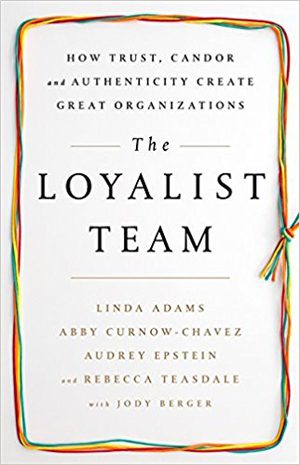
You’d think leadership consultant Linda Adams would be alright with a little office gossip – you know, that banter around the proverbial watercooler about your coworkers, managers and owners?
That would be a big N-O. Adams, partner of the Trispective Group, believes that all gossip is damaging to a company, its culture and its success. What most of the working world sees as harmless or even fun Adams sees as corrosive to the point that it can destroy even the best of teams.
 And in light of the current workplace environment where issues of sexual harassment have never been more publicized, gossip cannot be tolerated in the least, Adams added. Ignoring gossip or allowing it to thrive in a business is why people like Hollywood producer Harvey Weinstein, newscaster Charlie Rose, or actor Kevin Spacey were allegedly able to harass countless women and men over the past decades, she notes.
And in light of the current workplace environment where issues of sexual harassment have never been more publicized, gossip cannot be tolerated in the least, Adams added. Ignoring gossip or allowing it to thrive in a business is why people like Hollywood producer Harvey Weinstein, newscaster Charlie Rose, or actor Kevin Spacey were allegedly able to harass countless women and men over the past decades, she notes.
“Gossip is never positive – gossip lives in the shadows,” Adams said. “And those shadows where gossip lives created a playing field where sexual harassment and assault was possible. When the light is turned on, gossip dissipates.”
Adams has made office gossip, creating teams and promoting loyalty a theme in her work. She, along with co-authors Audrey Epstein, Abby Curnow-Chavez and Rebecca Teasdale, addresses these topics in “The Loyalist Team: How Trust, Candor, and Authenticity Create Great Organizations.”
So why what is so wrong with a little gossip? Adams said there are three main issues with gossiping in the workplace, the first being that it creates an environment of mistrust.
“When you start talking about coworkers instead of talking to them, you begin to see and assume the worst about their behavior,” Adams said. “One of the hallmarks of a great team is assuming positive intent. This is the idea that we should assume that our teammates have a good reason for what they’re doing or what they’ve asked of us. When gossip spreads, your team will begin to do the complete opposite of this.”
Secondly, gossip puts people on opposite sides when they are supposed to be working together. If people think someone has an ulterior motive, that will fuel suspicion. And suspicion leads, typically, to additional gossip, Adams said.
“On great teams, individuals see the team’s success as their own success. On a team with gossip and warring factions, groups and individuals view success as a zero-sum game. People will see start to see the success of another ‘faction’ as detrimental to their own. Cohesion and a true team mentality aren’t possible on a team that gossips,” Adams said.

Finally, offices that tolerate gossip are not open ones. Gossip makes it difficult if not impossible for people to have real conversations – those talks where the truth is important and tough words can be said in a mutually respectful environment. Conflict, disagreement and tough conversations are what makes a team work, Adams said.
So how do you combat gossip in a positive way? Adams suggests that every employee should play a role in this effort within a workplace. It is each individual’s role to ask questions of their colleagues, to check in when needed and to clarify any confusion. Misunderstandings evaporate quickly in such an environment, Adams said. But if there is conflict, confronting it will help pivot all the players in the right direction.
Adams also recommends people be open with one another. If a manager has a regular meeting with an employee to talk about his or her issues with other people, then they need some redirection, Adams said. Talking to the people who are in conflict and asking them to address their issues together can help bring a resolution, she noted.
Finally, Adams recommends that managers and business owners serve as company role models. The people in charge cannot gossip or tolerate it in the workplace. If you have participated in office gossip, be open about it and admit the mistake. Put your team first.
Adams encourages people to look on her company’s website to take an assessment of what kind of team they think they are working with in their workplace. If they want even more in-depth analysis, they can dive deeper with additional assessments available to learn about what attributes make for better teams.







